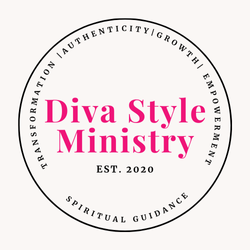How do you feel right now? Are you bored? Happy? Sad? Excited? Angry? Frustrated?
You can improve and change your mood when you implement a journaling practice and take time out to write down what is happening in your life.
Did you write in a diary when you were younger? Or maybe you had a pen pal who you would share your innermost thoughts with and exchange chatty letters with regularly? You may also remember that you felt better after doing it. That was a clue to the power that journaling has, and how much it can benefit your emotional health.
Journaling can leave you feeling more grounded, and more deeply connected to yourself and others. It can also help to boost your memory. Journaling helps to relieve stress and supports your immune system, thus improving your overall physical health, too!
Having the freedom to write out your ideas will help you clarify what is on your mind. It will help you process, analyze, and resolve the experiences that you have gone through.
Journaling helps you recognize your feelings and deal with them. It will help you develop clarity about who you are as a person and what you want from life. You might not feel comfortable sharing your story with others, or you might not want to talk about it.
Writing about it is a powerful tool that can make it easier for you to write down what’s on your mind and heart, and what’s in your emotions. The point is that you can process experiences, deal with past traumas, and outline what you want to achieve for your future.
It might seem boring to write about the things that happened to you today. However, Harvard research suggests that we are more interesting than we realize. The subjects in the study were asked to write about current experiences, whether it was a social media update or an activity. They were also asked to rate how interested they were in what they were given to write about. When asked to rate this using a scale of one to seven, three was the average response. Yet, when the subjects were given their journal entries three months later and asked for a new rating the average was 4.34: (https://www.hbs.edu/faculty/Publication%20Files/Rediscovery_91a38887-12e7-4c5c-a60d-866c0e4a95c4.pdf).
So, if in the moment you’re rolling your eyes, thinking your journal entry is pointless – know that it isn’t. You will benefit from it when it comes time for you to reflect.
Even moments that seem insignificant can take on deeper meaning down the line. We often don’t fully realize just how important these little moments in our lives are. We don’t recognize how they are influencing our emotional health.
Take the time to complete a detailed inquiry into the smaller moments of your life. Look back at an “insignificant moment” and take some time to tease out more information that may show you more clearly how it impacted your emotions.
The memories that you record form part of your identity. We perfectly imperfect human beings are guilty of misremembering the past. As we share a story, we embellish it for an audience. That embellishment becomes part of our internal record. We start to believe that it happened just as we described.
Your memory can also be swayed by input from others and future events. So recording your memories in a journal can be beneficial to your emotional health. When you run into difficult times, you can go back to a similar time to see how you coped and what you did to overcome.
Writing might not be easy for everyone – it may help to remember that your journal isn’t written for the eyes of others. This is your own personal path, your innermost thoughts and emotions, and you don’t need to share it with anyone. So, don’t worry about writing something amazing.
Don’t think about how others would perceive your thoughts. Just let them out. As you do, you will see an improvement in your emotional health. You’ll also find your sense of self-confidence growing because you’re trusting in yourself and spending valuable time getting to know YOU better.
Affirmations to Boost Your Emotional Health
Use the affirmations below as starting points for journal entries. Read them aloud, and determine which ones feel easy and which ones feel more challenging. Write about your feelings for an easy affirmation, and for a challenging one. Why does the affirmation feel easy? What’s resonating with you? Similarly, why does a particular affirmation feel challenging? What emotions does it bring up for you? Give yourself permission to explore those emotions and process them in your writing.
I turn my positive thoughts into positive feelings.
I deserve to feel my feelings.
I am supportive of myself and my emotions.
I do not judge my emotions, I express them in a healthy manner.
I don’t hide from my feelings, I process and embrace them.
I am fulfilled in myself.
I let go of what no longer serves me.
I am worthy of love and acceptance.





